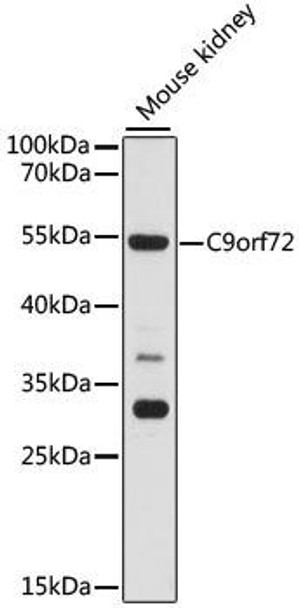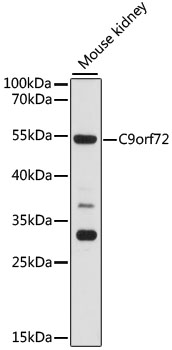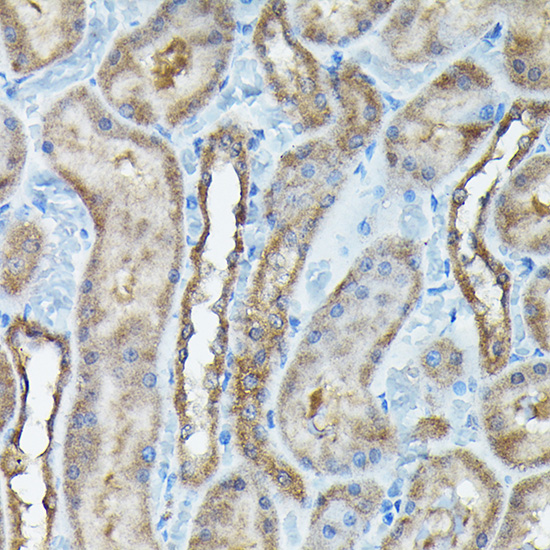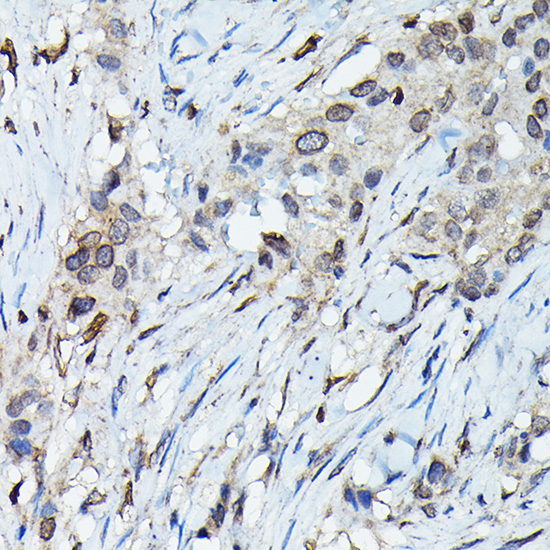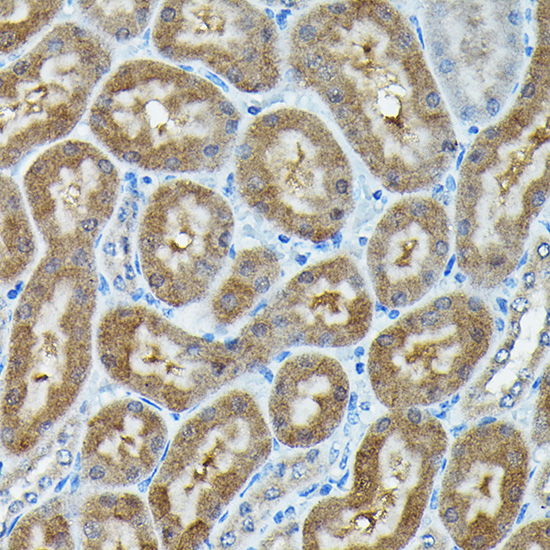| UniProt Protein Function: | Component of the C9orf72-SMCR8 complex, a complex that has guanine nucleotide exchange factor (GEF) activity and regulates autophagy (PubMed:27193190, PubMed:27103069, PubMed:27617292, PubMed:28195531). In the complex, C9orf72 and SMCR8 probably constitute the catalytic subunits that promote the exchange of GDP to GTP, converting inactive GDP-bound RAB8A and RAB39B into their active GTP-bound form, thereby promoting autophagosome maturation (PubMed:27103069). The C9orf72-SMCR8 complex also acts as a regulator of autophagy initiation by interacting with the ATG1/ULK1 kinase complex and modulating its protein kinase activity (PubMed:27617292). Positively regulates initiation of autophagy by regulating the RAB1A-dependent trafficking of the ATG1/ULK1 kinase complex to the phagophore which leads to autophagosome formation (PubMed:27334615). Acts as a regulator of mTORC1 signaling by promoting phosphorylation of mTORC1 substrates (PubMed:27559131). Plays a role in endosomal trafficking (PubMed:24549040). May be involved in regulating the maturation of phagosomes to lysosomes. Regulates actin dynamics in motor neurons by inhibiting the GTP-binding activity of ARF6, leading to ARF6 inactivation (PubMed:27723745). This reduces the activity of the LIMK1 and LIMK2 kinases which are responsible for phosphorylation and inactivation of cofilin, leading to cofilin activation (PubMed:27723745). Positively regulates axon extension and axon growth cone size in spinal motor neurons (PubMed:27723745). Plays a role within the hematopoietic system in restricting inflammation and the development of autoimmunity. |
| NCBI Summary: | The protein encoded by this gene plays an important role in the regulation of endosomal trafficking, and has been shown to interact with Rab proteins that are involved in autophagy and endocytic transport. Expansion of a GGGGCC repeat from 2-22 copies to 700-1600 copies in the intronic sequence between alternate 5' exons in transcripts from this gene is associated with 9p-linked ALS (amyotrophic lateral sclerosis) and FTD (frontotemporal dementia) (PMID: 21944778, 21944779). Studies suggest that hexanucleotide expansions could result in the selective stabilization of repeat-containing pre-mRNA, and the accumulation of insoluble dipeptide repeat protein aggregates that could be pathogenic in FTD-ALS patients (PMID: 23393093). Alternative splicing results in multiple transcript variants encoding different isoforms. [provided by RefSeq, Jul 2016] |
| UniProt Code: | Q96LT7 |
| NCBI GenInfo Identifier: | 71152412 |
| NCBI Gene ID: | 203228 |
| NCBI Accession: | Q96LT7.2 |
| UniProt Secondary Accession: | Q96LT7,Q6NUS9, A8K5W0, D3DRK6, G8I0B6, |
| UniProt Related Accession: | Q96LT7 |
| Molecular Weight: | 54 kDa |
| NCBI Full Name: | Guanine nucleotide exchange C9orf72 |
| NCBI Synonym Full Names: | chromosome 9 open reading frame 72 |
| NCBI Official Symbol: | C9orf72 |
| NCBI Official Synonym Symbols: | ALSFTD; FTDALS; DENNL72; FTDALS1 |
| NCBI Protein Information: | guanine nucleotide exchange C9orf72 |
| UniProt Protein Name: | Guanine nucleotide exchange C9orf72 |
| Protein Family: | Protein |
| UniProt Gene Name: | C9orf72 |

